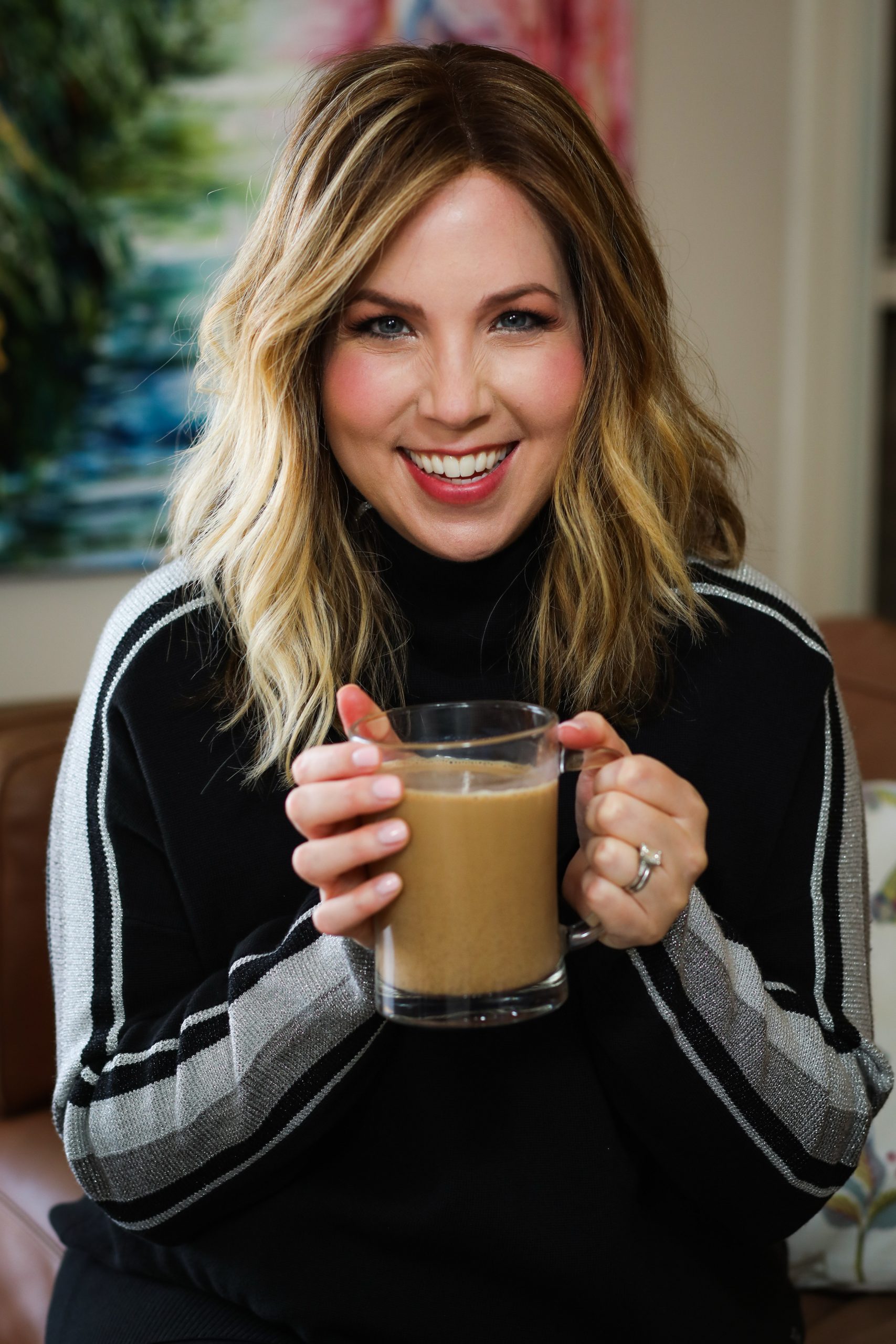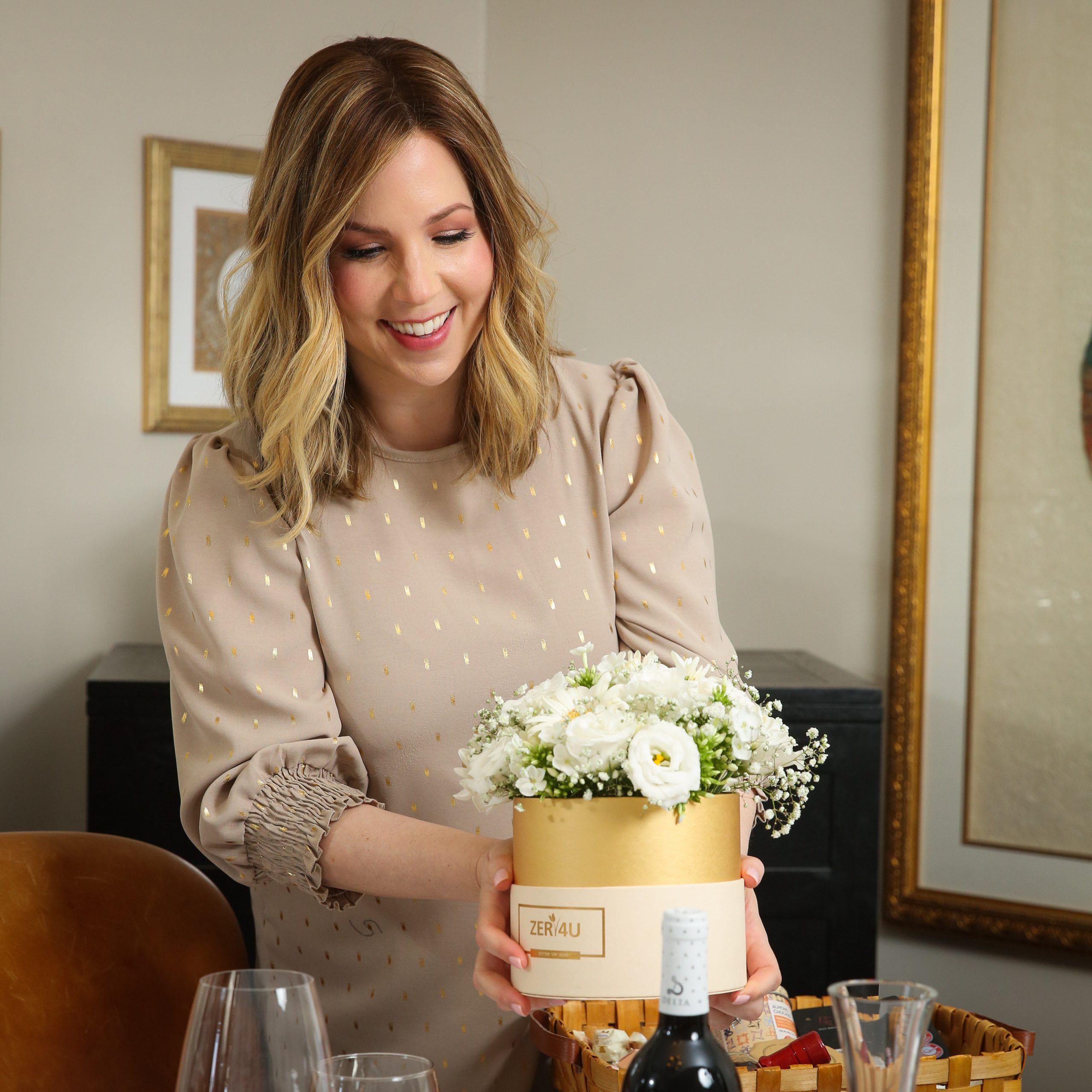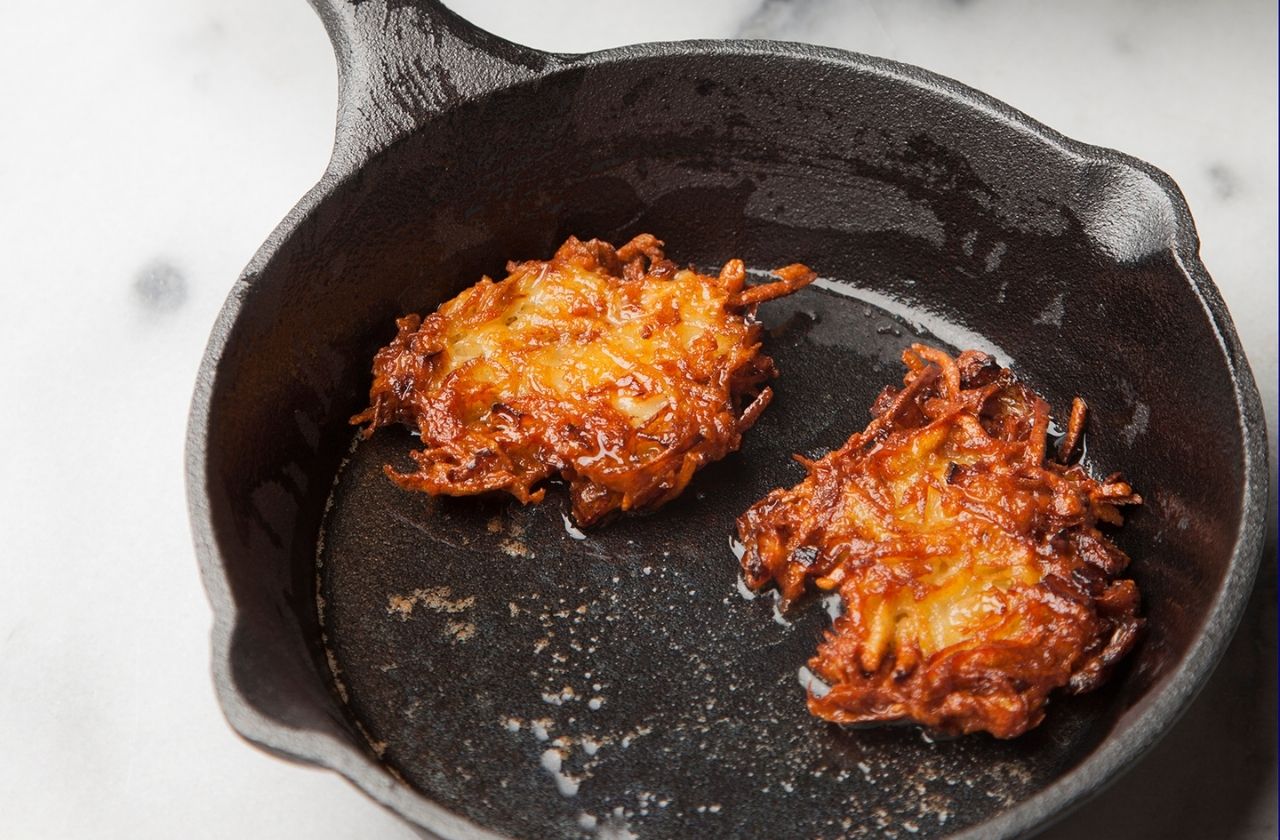We are so excited to be introducing a new feature to our Food Section. Every few months we will be presenting an interview with a celebrity chef. Women, and yes the occasional man, who have impacted today’s world of Kosher Cuisine. Whether they are professionally trained and cook in a restaurant, or are known because of their online blog, they have changed the face of how kosher food is perceived and seen in the world of cooking.
This month UNORTHOBOXED Contributor Ruti Eastman had a conversation with, as she puts it, The Queen of Kosher Cooking; none other than Jamie Geller. We hope you enjoy this feature and would love to hear feedback and suggestions for future interviews from you. Please reach out and let us know your thoughts.
Beteavon!
Shoshana Isaacson
The Inside Scoop with Jamie Geller
By Ruti Eastman
Jamie Geller’s relatively short career in the culinary arts has culminated thus far in seven sought-after cookbooks; a website with over 10,000 recipes and a YouTube channel with over a billion views; her own product lines including spice blends, flavored honeys, and seasoning mixes; and a brand-new healthy meal plan for families. This very busy mother of six agreed to speak with UNORTHOBOXED for our November Food and Chanukah issue. Who better to speak about food and Jewish holidays?!
Unorthoboxed: To give our readers a little background, how did you take yourself from being a self-professed “bride who knew nothing” to the acknowledged “Queen of Kosher”? What is the background and process that took you to this place? And why? It sounds like you were quite successful in your career!
Jamie: It certainly wasn’t purposeful, with no intended strategy. It was out of necessity. I was so desperate to cook for myself and my husband and a Shabbos table full of guests. There was a ton of trial and error. This was before blogs and social media became such a huge thing. Before that first cookbook came out fourteen years ago, I wrote weekly for the Five Towns Jewish Times. I wrote all about my failures in the kitchen. It was like a diary of how I learned on the job, more failures than successes. And from that was born the first cookbook. It took years to get enough recipes that were fast and simple, that took less than fifteen minutes to prepare, with only a few ingredients, ideally using only one or two pieces of equipment, often just a pan and a spoon.
Unorthoboxed: It’s almost Biblical, how you wrote about your failures. In everyone else’s history, they’ll only share with you their successes. But the Torah shares the Jewish people’s failures as well. In the world of cooking, Gordon Ramsay is only going to share with us his successes. I love that your approach was so honest. How Jewish!
At the time, you were already so busy and successful with your career in writing for TV, with CNN—and I don’t even know how you had the time to do everything you were doing. I heard a rumor that your husband could cook. So why was it necessary for you to cook?
Jamie: Yes. He can cook, he taught me how to cook, and he cooks to this day. He loves the kitchen, while I prefer not to be in the kitchen. He’s my official sous chef. As a parent, it’s really helpful if both parents can cook. It’s a pleasure to cook for him, and I wanted to be able to cook for the kids and for company. But we do everything together. He’s still in the kitchen as much as I am, if not more. And anyone who wants to come and help is invited, especially to do the dishes.
Unorthoboxed: Indeed. We can always use help with the dishes. There have been noticeable changes in your cooking style from the first cookbook to today. Can you share a little of your philosophy behind these changes? Did your 2012 aliyah to Israel affect your cooking style?
Jamie: Oh, completely! So, first of all, I always needed recipes that were quick and easy (and of course, kosher). Back then I didn’t have the skill set; then, I didn’t have the time, and as I said, I didn’t have the love for the kitchen. People talk about the culinary arts, and of course, I get that. But it’s not how I’ve ever approached cooking. I’m always cooking out of the necessity of feeding the family or entertaining for Shabbos. So initially, when I sought to do quick and easy recipes, I used a lot of shortcuts, like consommé mix to quickly spice things up, or prepackaged ingredients.
Still today, I do love the luxury of using things that are pre-cut or pre-sliced, but in Israel, there’s less of that. The Five Towns was full of prepared foods like “Butternut Squash 18 Ways,”—like, do you want it cubed with the skin on, with the skin off, do you want it in halves—so I relied on a lot of that for the quick and simple. But as things changed, as I wanted to use more natural and healthful ingredients, I stayed away from the soup mixes. After the move to Israel, a lot of the pre-cut, pre-checked, pre-packaged “however you like it” items were not available on the shelf. And I was introduced to a lot of the super-duper flavorful Middle Eastern ingredients, like sesame tehina and silan, which I use on everything from cooking to baking. I use spices like cumin; and where maybe I had one recipe that used cumin in my first cookbook, now it’s a regular in my spice cabinet. I regularly use a lot of the different blends I offer, like shawarma spice and baharat and sumac and za’atar. My aliyah coincided with not just a Jewish interest, but a worldwide interest in Israeli food and the Israeli culinary scene. A lot of Israeli chefs moved to major cities in America and opened (unfortunately not kosher) restaurants, all over the States, from East to West, from North to South. So this became an emerging trend, and I was happy that it coincided with my being in Israel. A lot of those super flavorful Middle Eastern ingredients and my interest in moving to all-natural allowed me to stay with my quick and easy recipes, but do that in a more healthful way, and a more exotic way.
Unorthoboxed: I love that you are making healthy, flavorful Israeli cuisine more accessible to a greater audience, and keeping it kosher. What are some of your favorite cooking shortcuts?
Jamie [laughing]: My spice blends! Sumac is made of just one berry, but hawaij is made of like ten different ingredients, and harissa adds so much more depth and flavor than chili powder. Being able to use just one tablespoon of this blend or one teaspoon of that blend excites the palate and makes it so much easier to create interesting food. That is one of the great shortcuts, because I used to add all of those individual spice components before I put together the blends.
No one could have foreseen that Israel would be closed to so many people [due to COVID]; and I love making it possible for people to travel to Israel from their kitchen by using flavorful spice blends.
And I’m not joking when I say that my husband is my sous chef. I will employ my husband, my kids and myself to pre-cut and prep all of my ingredients. I’ll do a lot of that the day before a huge cooking day, or at the beginning of the week for school lunches, snacks, dinners. I’ll have the vegetables and herbs checked, washed and pre-cut, because we’re so much more inclined to grab healthy food when it’s ready to go.
Unorthoboxed: I remember when I had four wild and crazy boys to raise, saying that if someone would just come and do it for me, we would eat a lot more salad. Tell us about the impetus behind the Fresh Families Healthy Meal Plan?
Editor’s note: Fresh Families Healthy Meal Plan is a monthly subscription program where you choose your menu from their plan and then you can easily order all the food items needed to prepare the meals you have chosen. This feature is only available in the United States.
Jamie: When you want to eat healthy food, it’s annoying to cook differently for yourself than for the rest of the family. And we want our families to eat healthy, too. Whenever we think about eating healthy, it sounds boring. We just think about roast chicken, steamed broccoli, and it’s so unappetizing. Those things are great, but not every day! You’re “hangry” and upset and unmotivated before you even start. So I wanted to create family-friendly foods that are good for us, still delicious, but are still quick and easy to prepare, using few ingredients and utensils. I wanted to introduce a few more interesting spices to wake up the food and make it more interesting, and to create a meal plan that the whole family can enjoy and that’s good for the whole family. For example, One Pot Pumpkin Mac and Cheese. We’re hiding the pumpkin in there to give it a creaminess and a texture and to cut some of the fat, and adding chopped cauliflower with the pasta to reduce some of the carbs. Or for Shabbos, we developed a half the fat, half the calories, half the carbs potato kugel which uses riced cauliflower mixed in with the potatoes. We make some of the foods your kids love—the fishsticks, the chicken nuggets, the pizza—reinventing them in a more healthy way. We include some of the Ashkenazi and Sephardi favorites, including desserts and snacks.
The app offers step-by-step instructions including a shopping list, how you can customize the plan for your family for size, or for if you don’t want a certain ingredient. It takes the thinking out of it, because all of the thinking and planning and trying to make the food interesting takes eating healthy from being desirable to feeling unattainable, and then we just give up before we start.
Unorthoboxed: What is the most important advice you could share with a newly married woman when it comes to cooking for her husband, guests and eventually children?
Jamie: When you’re about to embark on this amazing life together, you want to be in sync on so many things. Asking them what they want and really listening to them is important. A lot of times we have in mind what we’re in the mood to cook or what we think they should eat, and then we get upset if they don’t eat it or don’t like it. How often do you slave over dinner, and no one’s eating, and you knew they wouldn’t like it. You can’t just shut down their preferences—so really trying to understand what they love, getting on the same page, planning meals together and getting everyone involved, the kids and the husbands. Let’s say they don’t want to cook, let them shop. If they don’t want to shop, let them help you unpack the groceries, or prep the vegetables. If it’s not feasible for your husband to help in the kitchen, fine, at least let him help with the meal planning, so you’re all on the same page. One of the ideas with Fresh Families is that it includes them and their food preferences in the menu planning. Because the more invested each of us is in what goes on the table, the more likely we all are to eat it.
Unorthoboxed: I think you just gave great marriage and parenting advice. “How about listening to them?” That’s a great idea! So what’s next for you in terms of your career? Any idea of what you have planned after the little Gellers leave the nest?
Jamie: Oh, my gosh. Well, first of all, my oldest is sixteen and my youngest is six, so I definitely have time before they go. But I’m very connected with Aish, and with connecting with world Jewry. A year ago, I was named the Chief Media and Marketing Officer for Aish HaTorah. I’ve been tasked with rebranding the organization from the top down, and reimagining a digital strategy that would be responsible for bringing three million Jews to learning Torah in ten years. The initiative is called Aish Vision 2030.
I am hoping to use everything I’ve learned in the very apolitical world of food, to bring people together for a common goal, and now to bring Jews together around Jewish wisdom, and to connect to our Torah and to our heritage. Food is one way, lifestyle and cultural touchpoints are another way. And that’s really my focus for the next decade. By then my youngest will be seventeen, and maybe then I can think about retiring.
…the more invested each of us is in what goes on the table, the more likely we all are to eat it.
Unorthoboxed: What would be your dream birthday meal?
Jamie: Oh my gosh. My dream birthday meal is full of carbs, full of cream, full of butter, and with a really rich, creamy dessert as well.
I do have to say that for my birthday indulgence, I used to get for myself an “everything” bagel, toasted, dripping with butter, and crème brûlée for dessert. A Jewish girl meal with a French girl dessert.
I think there are times we can indulge in the things we love. My grandmother always said, “Everything in moderation.” If you save those things for birthdays or holidays or special occasions, then that’s fine. And then you’re using Fresh Families for the rest of the year.
Unorthoboxed: Absolutely. That’s very wise. That keeps the things we’d love to have from becoming “the forbidden fruit” that we’re obsessed with.
Jamie: Exactly. You have to indulge occasionally, otherwise, your healthy eating plan is not sustainable.
Unorthoboxed: Thank you so much for taking the time to speak with us. I look forward to adding more of your recipes to our diet, as the ones that have become staples (the Broccoli and Cauliflower Kugel and the Tabbouleh Salad with Cauliflower Rice among them) have definitely added to our health and helped to decrease our weight. I am sure this new direction in your cooking will be very welcome to your followers and readers.
Jamie: It was a pleasure. I’d like to offer your readers a discount on the Fresh Families Healthy Meal Plan and some recipes for Chanukah and Thanksgiving!
For our readers, Jamie Geller is graciously offering a 25% discount for a Fresh Families Health Plan subscription, good until 1 May 2022. Click on the following link to take advantage of this special offer! 25% discount for Unorthoboxed readers
Photo credit: All photos in this article are courtesy of jamiegeller.com
As a gift to our readers Jamie has graciously given UNORTHOBOXED two recipes to share with you. These recipes courtesy of Jamie Geller and koshernetwork.com.







